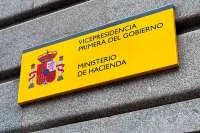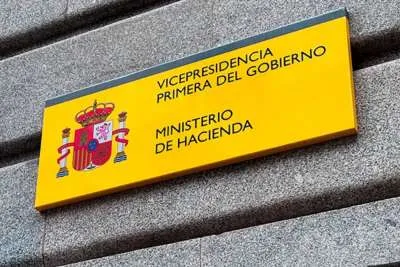Spanish courts extend the tax shield to non-residents and open the door to massive Wealth Tax refunds
- 17-11-2025
- Business
- Canarian Weekly
- Photo Credit: Freepik
The Spanish Supreme Court has once again ruled in favour of taxpayers, relying on the principle of free movement of capital. Once again, EU law comes to the rescue. This is a long-standing demand: tax advisers specialising in Non-Resident taxation have spent years defending the position now finally confirmed by the Supreme Court in its Judgment 1372/2025 of 29 October.
This resolution opens the door for non-resident taxpayers to apply the combined limit, the “tax shield”, putting an end to what the Court considers discriminatory tax treatment contrary to EU law.
This tax shield prevents the combined amount of Wealth Tax (IP) and Personal Income Tax (IRPF) from exceeding 60% of the IRPF taxable base of the taxpayer. If that threshold is exceeded, the Wealth Tax liability must be reduced, up to a maximum reduction of 80%.
Until now, only Spanish tax residents could apply this limitation. Anyone residing abroad and taxed exclusively on assets located in Spain was automatically excluded, meaning that their tax burden could become confiscatory.
The Supreme Court has now ruled that this difference in treatment is unjustified, violates the free movement of capital (Article 63 TFEU) and produces a discriminatory effect prohibited under EU law.
The judgment not only stops a historically restrictive administrative practice but also strengthens a broader trend: the need to ensure equal tax treatment between residents and non-residents whenever their situations are objectively comparable and when the different treatment affects cross-border investments.
The Supreme Court recalls that EU case law has already warned Spain in similar contexts, highlighting the EU ruling that forced Spain to amend its inheritance and gift tax legislation: if a tax measure reduces the value of a non-resident’s assets more than those of a resident, and that difference is based solely on residence, the measure constitutes a restriction on the free movement of capital.
Such a difference would only be lawful if justified by overriding reasons of public interest. However, no such justification exists, because:
1. Wealth Tax is a Spanish tax whose potentially confiscatory effect can equally impact non-residents.
2. The tax authorities can verify foreign personal taxation, through Double Tax Treaties.
3. The purpose of the limit is to prevent Wealth Tax from eroding the taxpayer’s capital, a risk that also exists for non-residents.
4. Tax residence alone does not justify a harsher tax burden.
A practical example showing how the ruling changes the tax bill: Consider a non-resident who owns real estate in Spain and pays Wealth Tax:
· Net wealth in Spain: €4,000,000
· Wealth Tax liability 2025: €60,000
· Worldwide income declared abroad: €70,000
· Income tax paid abroad: €20,000
Applying the combined limit, the maximum total amount payable for income tax plus Wealth Tax would be €42,000. However, in Spain alone this taxpayer has already paid €60,000 in Wealth Tax. The excess must therefore be reduced, subject to the 80% limit. In this case, the maximum Wealth Tax payable would be €22,000, resulting in a €38,000 tax saving.
The Supreme Court’s resolution opens the door for all non-residents who paid Wealth Tax without applying the tax shield in non-prescribed years to review their situation and, where appropriate, claim a refund of undue payments.
The impact may be significant in regions with a high concentration of non-resident owners of high-value properties, such as the Balearic Islands, Madrid, Andalusia, Valencia, and the Canary Islands.
Other articles that may interest you...
Trending
Most Read Articles
Featured Videos
TributoFest: Michael Buble promo 14.02.2026
- 30-01-2026
TEAs 2025 Highlights
- 17-11-2025




























































